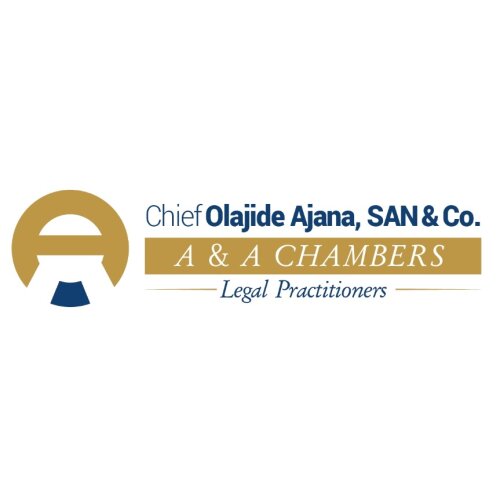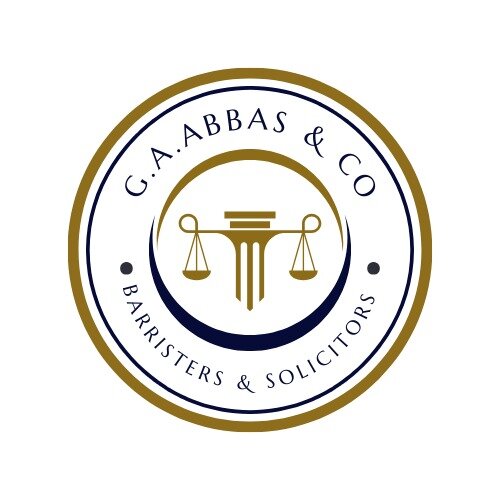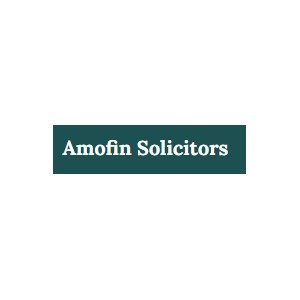Best Investment Lawyers in Abuja
Share your needs with us, get contacted by law firms.
Free. Takes 2 min.
List of the best lawyers in Abuja, Nigeria
About Investment Law in Abuja, Nigeria
Investment in Abuja, Nigeria, falls under the broader framework of investment law in the country. Nigeria, being one of Africa's largest economies, offers numerous opportunities for both local and foreign investors. The investment landscape in Abuja, the nation's capital, is robust, featuring sectors like real estate, agriculture, oil and gas, and technology. The Nigerian government has implemented various policies to encourage investments, ensuring that investors have a conducive environment for business operations. Key legislation like the Nigerian Investment Promotion Commission (NIPC) Act provides guidelines and protections for investors.
Why You May Need a Lawyer
Engaging legal expertise when making investments is crucial for several reasons:
- Compliance: To ensure compliance with local regulations and laws governing business operations.
- Documentation: To assist in drafting and reviewing contracts, ensuring they are fair and protective of your interests.
- Dispute Resolution: To provide representation and strategic advice in resolving disputes that may arise from investments.
- Intellectual Property: To help protect intellectual property rights and trademarks if your investment involves branding or technology.
- Regulatory Guidance: To navigate any bureaucratic processes involved in obtaining licenses or permits necessary for operation.
Local Laws Overview
Several key laws and regulations govern investments in Abuja, Nigeria:
- Nigerian Investment Promotion Commission (NIPC) Act: Aims to attract and protect foreign investments by offering incentives and ensuring the repatriation of earnings.
- Companies and Allied Matters Act (CAMA): Governs the formation and management of companies in Nigeria, a vital framework for investors looking to establish corporations.
- Foreign Exchange (Monitoring and Miscellaneous Provisions) Act: Regulates foreign exchange transactions, essential for foreign investors.
- Securities and Exchange Commission (SEC) Regulations: Provides a framework for investing in the capital market.
- Tax Laws: Includes the Companies Income Tax Act and the Value Added Tax Act, which are crucial for understanding tax liabilities.
Frequently Asked Questions
What sectors are most favorable for investment in Abuja?
Real estate, agriculture, energy, information technology, and hospitality are among the most promising sectors for investment in Abuja.
How does one register a business for investment in Abuja?
Business registration is primarily handled by the Corporate Affairs Commission (CAC) under the Companies and Allied Matters Act (CAMA).
What incentives are available for foreign investors?
The NIPC offers various incentives, including tax holidays, import duty exemptions, and the ability to repatriate profits.
Can foreign investors own 100% of a business in Nigeria?
Yes, foreign investors can own 100% of a business in most sectors, except those on the negative list such as firearms, narcotics, and military-related activities.
What legal protections are available for investors?
Investors are protected under the NIPC Act, which ensures non-expropriation and equitable treatment of foreign investors.
How can disputes be resolved between investors and Nigerian entities?
Disputes can be resolved through arbitration, mediation, or the Nigerian court system, with arbitration being the preferred method for many investors.
What are the key tax obligations for investors?
Investors must comply with the Value Added Tax Act, Companies Income Tax Act, and other relevant tax regulations.
Are there restrictions on profit repatriation for foreign investors?
No, foreign investors are allowed to repatriate profits and dividends, provided they meet the Central Bank of Nigeria's requirements.
How does the Nigerian government protect intellectual property?
Intellectual property is protected under various laws, including the Nigerian Copyright Commission and the Trademarks, Patents, and Designs Act.
Can I invest in Nigeria through a joint venture?
Yes, joint ventures are a common form of investment, allowing foreign and local partners to collaborate and share resources and expertise.
Additional Resources
For more information and assistance, the following resources and bodies may be helpful:
- Nigerian Investment Promotion Commission (NIPC)
- Corporate Affairs Commission (CAC)
- Securities and Exchange Commission (SEC)
- Federal Inland Revenue Service (FIRS)
- Nigerian Bar Association (NBA)
- Business organizations and chambers of commerce
Next Steps
If you require legal assistance in matters of investment in Abuja, consider the following steps:
- Consult with an experienced investment lawyer familiar with Nigerian laws.
- Ensure comprehensive due diligence on potential investments.
- Contact the Nigerian Investment Promotion Commission for guidance on incentives and compliance.
- If necessary, seek professional services like accounting and tax consultancy.
Taking these steps will enhance your preparedness and reduce the risk associated with investment ventures in Abuja, Nigeria.
Lawzana helps you find the best lawyers and law firms in Abuja through a curated and pre-screened list of qualified legal professionals. Our platform offers rankings and detailed profiles of attorneys and law firms, allowing you to compare based on practice areas, including Investment, experience, and client feedback.
Each profile includes a description of the firm's areas of practice, client reviews, team members and partners, year of establishment, spoken languages, office locations, contact information, social media presence, and any published articles or resources. Most firms on our platform speak English and are experienced in both local and international legal matters.
Get a quote from top-rated law firms in Abuja, Nigeria — quickly, securely, and without unnecessary hassle.
Disclaimer:
The information provided on this page is for general informational purposes only and does not constitute legal advice. While we strive to ensure the accuracy and relevance of the content, legal information may change over time, and interpretations of the law can vary. You should always consult with a qualified legal professional for advice specific to your situation.
We disclaim all liability for actions taken or not taken based on the content of this page. If you believe any information is incorrect or outdated, please contact us, and we will review and update it where appropriate.





